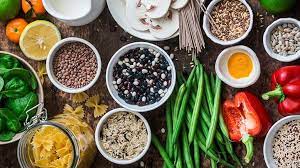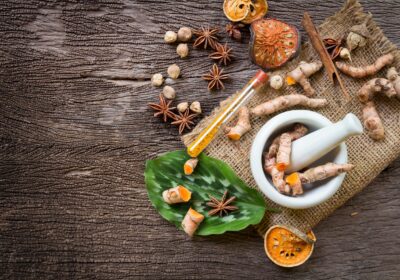
What are different foods that will help to reduce heartburn?
Heartburn occurs when stomach acid backs up into the oesophagus, causing an uncomfortable burning sensation in the chest and throat. Various causes cause it to appear, such as certain foods or alcoholic beverages, and during pregnancy, it is one of the most common digestive discomforts.
Some medications reduce symptoms, but the best way to avoid them is with a proper diet.
Zucchini
With a high content of vitamins, minerals, carbohydrates, fibre and water, zucchini is one of the lightest and easiest to digest vegetables that helps us avoid acidity, as it protects the digestive system and also allows us to take care of the health of the nervous system and the immune system.
Carrot
It is the star vegetable because, besides having a source of vitamins and minerals, its high beta-carotene content helps regenerate the digestive mucosa, prevent cellular ageing of the skin and improve vision. To help combat acidity, we can consume them steamed or in a stew.
Broccoli
It is rich in carotenoids, vitamin A, vitamin C, selenium, potassium, vegetable calcium, B complex vitamins, and proteins. Also, broccoli has a high fibre content, which helps us purify our body, better digest fats and eliminate toxins that cause stomach and health problems.
Cauliflower
From broccoli’s family, cauliflower is high in fibre, beta-carotene, vitamins C and K, and antioxidant minerals. We can also enjoy it steamed or in salads.
Green beans
Besides being a good source of calcium, green beans are rich in magnesium, a mineral that gives us a calming effect and helps us keep acidity under control. We can include them in our food in salads and soups recipes and enjoy them cooked, baked or steamed.
Celery
Celery, which at first glance only seems like a food that helps us lose weight, is a source of numerous vitamins, including vitamins A, B1, B2, B6, B9, C and E, and minerals such as potassium and magnesium. Which, as we know, helps control acidity. It also has a high fibre content, which allows us to release waste and toxins from our bodies.
Asparagus
In addition to being a powerful antioxidant, asparagus is a source of fibre, phosphorus, magnesium and potassium, as well as vitamins A, C, E and K. Also, being a diuretic food, it helps in fluid retention.
We can consume them steamed, baked or in a delicious cream, accompanied by other vegetables.
Potato
Thanks to their properties, potatoes help neutralise the effect of gastric juices, but it is essential to emphasise that they should be eaten boiled, steamed or baked and avoid frying to help keep acidity at bay.
Banana
It is rich in potassium and high in fibre. It is one of the best foods to take care of our stomach, thanks to its alkalising properties that neutralise the acid. In addition to enjoying it as a snack, we can include it in multiple recipes and consume it in cookies, pancakes or chips.
Apple
One of the most recommended fruits at any age and condition, the apple provides multiple properties and benefits to our body. In addition to being a moisturising fruit, it helps reduce fluid accumulation, and its high fibre content helps us avoid constipation and other intestinal problems.
Pear
Thanks to its high content of vitamins and minerals, in addition to helping us prevent the onset of anaemia, pears help regulate the digestive system and combat acidity. In addition, being a good source of fibre, it also helps us regulate intestinal transit.
Grapes
In addition to being one of the lightest and most delicious fruits, grapes are rich in iron and potassium. They do not contain cholesterol or sodium, taking care of the health of our intestines, kidneys and liver. Therefore, we can consume them as a fresh snack between meals.
Khaki
In addition to offering us a wide variety of nutrients such as vitamin A and carotenoids, persimmon is very useful when taking care of the intestinal transit of the body due to its fibre and astringent power as well as having antioxidant and anti-inflammatory properties.
Cantaloupe
the melon is a very satiating fruit with many benefits since among its minerals, the contribution of potassium stands out, as well as its magnesium content. It also provides carotenoids and vitamin A in high proportions, as well as vitamin C and a variety of B complex vitamins.
Papaya
In addition to having a high nutritional value, papaya contains papain, an enzyme similar to pepsin that is very beneficial for the digestive system. Therefore, its consumption will help us improve digestion and avoid problems such as gastritis, gas, heavy digestion and annoying heartburn.
Watermelon
The watermelon contains folic acid, potassium, magnesium, fibre and carbohydrates. It is a moisturising, purifying fruit with high antioxidant power. We can enjoy it fresh or in juices.
Peach
It contains high levels of vitamins A and C, magnesium, potassium and iodine. In addition, it is a good source of fibre, which helps with digestive processes.
Oatmeal
It is one of the wealthiest cereals in fibre, which also has unsaturated fats and contains potassium, magnesium, calcium and B vitamins. Due to its large amount of soluble fibre, it helps regulate intestinal transit.
Rice
Rice, whether white or brown, is also one of the foods that help us fight heartburn, and with this in mind, we can prepare it with pumpkin and mushrooms.
Chicken
As for meats, the best thing to keep acidity at bay are white meats such as chicken, but we must consume it without skin, and preferably baked or steamed and add it to a sauce. Salad.
Turkey
Like chicken, turkey meat helps us avoid acidity, and we must cook it without fat or many seasonings or spices. We can enjoy it baked or in soups.
Fish
Another food recommended to consume when suffering from heartburn is fish, preferably steamed or baked. It is important to remember that during pregnancy, there are certain types of fish and shellfish that are prohibited, so we must choose safe options such as salmon.
almonds
Like other nuts, almonds are a source of vegetable fats and proteins and a great source of fibre and provide vitamins and minerals, among which potassium, magnesium, phosphorus and calcium, and vitamin E and group B stand out. They also have a prebiotic effect on our intestine and can therefore help care for intestinal flora.
Olive oil
In addition to having a high nutritional value, olive oil can help mild acidity. Taking a spoonful of it acts as a protective film on our stomach, which prevents the effect of gastric acids and helps neutralise the discomfort and burning that they could cause.
Yoghurt
Food that works to relieve the discomfort of heartburn and also prevent them in the future is natural yoghurt, an essential probiotic that helps us protect our digestive system.
Skim milk
Drinking a little skim milk can help reduce the discomfort of heartburn, but it is essential not to exceed its consumption because instead of helping, it could make it worse.
General recommendations
In addition to making changes to our diet and including the foods we recommend to keep heartburn at bay, there are other things we can do to prevent it from appearing and reduce its symptoms. Some tips are:
- Eat more small meals a day. Instead of eating three times a day in large portions, try eating six or seven times in smaller meals.
- Always accompany meals with water and not other drinks, but try not to drink too much when eating and preferably drink more between meals.
- Stand tall after eating and try not to eat right before bed. If you need to rest, sit down or raise your head and back slightly.
- Avoid consuming foods with a lot of spices, fried foods, and grilled foods. Preferably everything is boiled, steamed or baked.
- Avoid those foods that raise the level of acidity, such as very fatty, spicy and citrus.
- Similarly, avoid drinking beverages such as coffee, soft drinks with caffeine or theine, sugary drinks and bubbles, as they also promote burning.


















